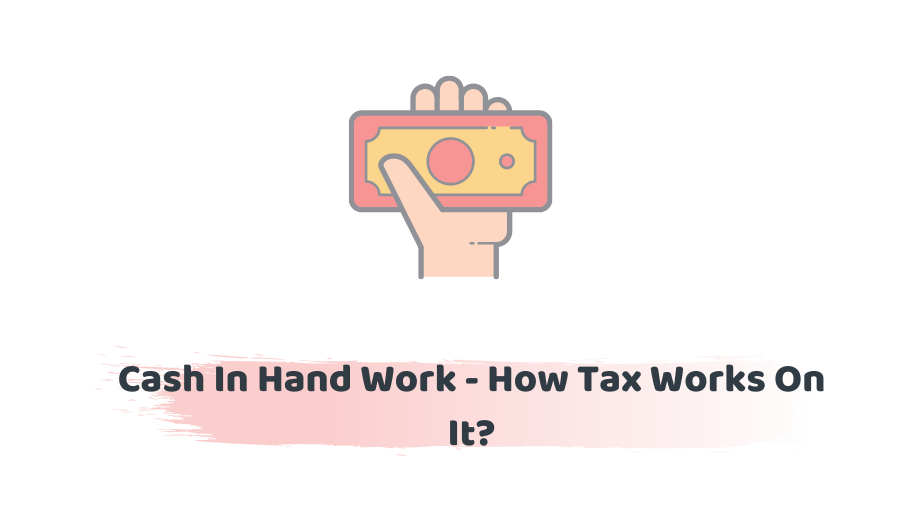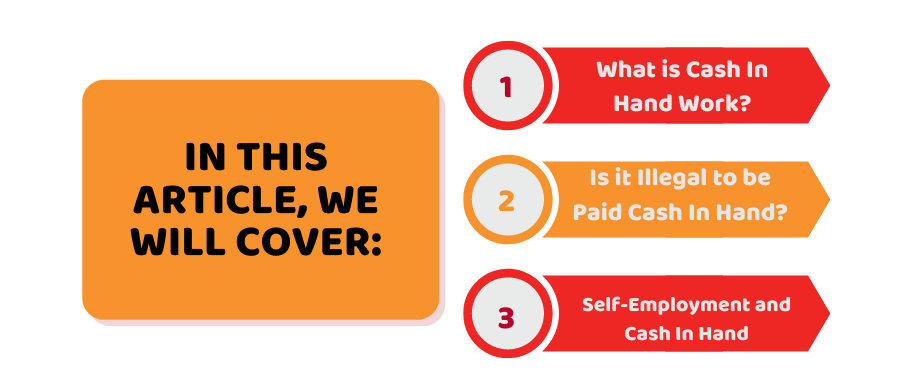Are you considering taking cash in hand work? What the tax implications are, is probably the question you are looking for. The first issue you want to understand is that the precise implications will depend upon your non-public circumstances.
For example, you’re a student, have a task or are registered as self-hired. This guide will provide an explanation for how HMRC views cash in hand jobs and what you want to do inside the usual place scenarios.
In this article, we will focus on:
- What is Cash In Hand Work?
- Cash in Hand – Is it legal?
- Self-Employment and Cash In Hand
What is Cash In Hand Work?
Cash in hand work has a tendency to be quick-time period preparations with an agency who can pay you cash in preference to placing it instantly into your financial account or including you to payroll.
These forms of jobs have a tendency to be usual in industries consisting of production or cleaning or at some times for the store assistants for Christmas events etc.
Cash In Hand-Is it Legal?
It isn’t unlawful to pay in cash, and you could be paid for your job in any form. But your profits, in maximum cases, need to be informed to HMRC. If you have to pay the tax for your agency.
When an individual is hired, they obtain a payslip that has gross profits and includes a tax code. So, their agency is aware of how a lot of profits tax is to deduct. It’s easy, and the worker in no way desires to reflect on consideration on HMRC and taxes.
But while you are paid in hand no tax or countrywide coverage has been deducted so it’s right all the way down to you to decide whether you desire to work for such options or not.
Still, have a question? Get in touch with us.
Do I Need to Inform HMRC?
Once you earn extra than £1,000 you need to inform HMRC approximately your profits. Below this threshold, you could take benefit of the buying and selling profits allowance which allows UK taxpayers to earn up to £1,000 for the duration of a single tax year without telling HMRC.
It enables to simplify the tax device for the individuals simply bumping up their profits with such things as promoting on eBay. The way in which you need to preserve a log of the way a lot you’ve got been paid to show to HMRC which you haven’t earned exceeding the limit than £1,000.
You can do this via means of retaining a spreadsheet with a listing of what you’ve been paid, and the date you acquired it. Once you earn over £1,000 cash in hand in a tax year you’ll want to allow HMRC to understand your profits even in case you’re income is under the personal allowance.
Cash In Hand Jobs-How to Inform HMRC?
When you allow HMRC to understand whether or not you’ve got informal profits or you’re self-employed. Casual implies what you’re doing is one-off, while self-hired says that you’re probably in it for a long time to have a stable way of income operating for yourself.
Self-Employment and Cash In Hand:
In case of being self-employed, you’ll be needed to record your profits to HMRC on a tax return one time in a year, till 31 January. You’ll do that in the self-employment part of the return and where you want to claim the profits of your business, then paying self-hired tax accordingly.
Accotax Chartered Accountants in London is a dedicated firm based in Morden, UK. Call us at 020 3441 1258 or send us an email at [email protected].
Casual Income:
Whether you’re self-hired or have informal profits, you’ll understand your registration with HMRC is whole when you have a UTR quantity issued. Keep this reference UTR number as it will be helpful when you’ll want it to control your taxes.
To announce your casual income, you file your tax return, you’ll be required to add the amount that you got in the very main section. That method in case you had to shop for something so that it will earn the cash you made you could declare this as a deduction towards your profits. Simply ensure you saved receipts as evidence. For example, in case you have been a hairdresser and had to shop for products.
Conclusion:
In conclusion, we can say that you can’t deduct all expenditures, even in case you do sense you paid for them in the direction of your job. However, you could test what you could and can’t declare. We hope this article helped to develop a better understanding of cash in handwork.
Can’t find what you are looking for? why not speak to one of our experts and see how we can help you are looking for.
Disclaimer: This article is based on general information about cash in handwork.






















































